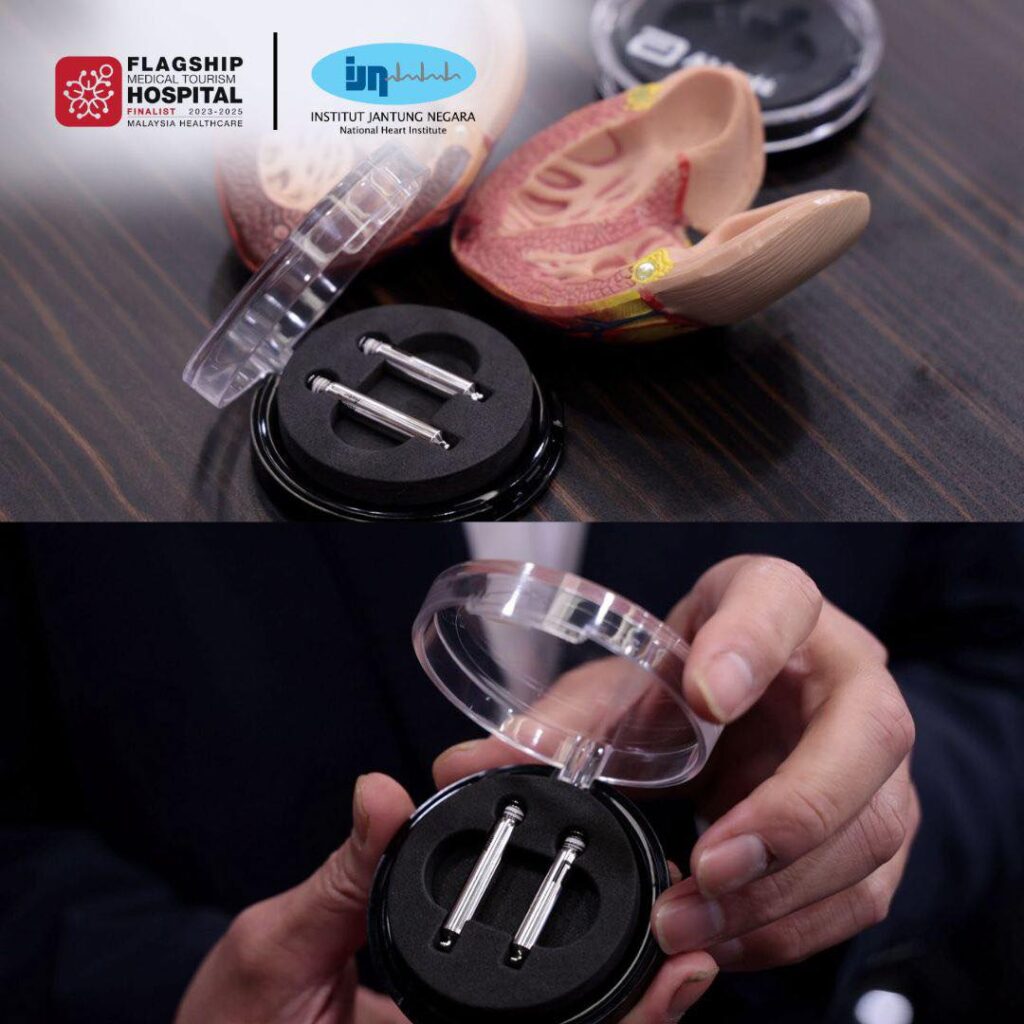
KUALA LUMPUR, June 5 (Bernama) — The National Heart Institute (IJN) has made medical history by becoming the first centre in Southeast Asia to successfully implant the world’s first dual-chamber leadless pacemaker system, the Abbott AVEIR™ DR.
Senior consultant cardiologist and Interventional Electrophysiology & Implantable Devices clinical director Datuk Dr Azlan Hussin, said the achievement reflects IJN’s commitment to setting new standards in cardiac care both in Malaysia and the region.
“This groundbreaking dual-chamber leadless pacemaker will revolutionise care for our current patients and create a significant opportunity to expand the number of people we can serve, including children.
“By eliminating traditional wires (leads) and surgical pockets, this leadless system significantly reduces the risk of complications such as infections, lead dislodgement, or vessel occlusion,” he said at a press conference at IJN today.
He noted that the long-term complication rate is typically between one and two per cent, comparable to, and in some cases lower than, that of conventional pacemakers.
To date, 18 patients have received the new device, with the first implantation conducted on May 27. This milestone builds on IJN’s decade-long experience with leadless pacemaker technology, during which nearly 900 patients have undergone procedures involving wireless pacemakers.
Dr Azlan said the AVEIR™ DR system offers a range of potential benefits, including a shorter procedure time typically between 20 minutes to one hour, depending on the patient’s heart condition.
“The system also provides real-time pacing analysis, enabling physicians to confirm accurate device placement during the procedure before the final implantation into the heart chamber,” he said.
IJN chief executive officer Prof Datuk Seri Dr Mohamed Ezani Md Taib said the initial cost of the procedure is slightly higher due to the new technology.
“As with any new technology, the initial cost is slightly higher. However, in general, IJN’s charges are significantly lower than those at most private hospitals,” he said.
On whether other hospitals in Malaysia could adopt the procedure, Dr Mohamed Ezani said it’s not just about offering a service, it’s about having the right expertise and infrastructure.
“People need to understand that this is not just about business. It’s about having the clinical expertise, advanced technology, and the right facilities, something IJN is proud to offer.”
“At IJN, innovation isn’t just about introducing new technology, it’s about creating real, meaningful impact. The AVEIR™ DR implantation marks a leap forward in cardiac care and reinforces our role as a regional leader,” he said.
He also emphasised the importance of awareness and early intervention in addressing cardiovascular disease, which remains a significant health challenge in Malaysia.
The AVEIR™ DR system, designed for patients with slow or irregular heart rhythms, marks a major breakthrough in cardiac pacing. Unlike traditional pacemakers, it consists of two miniaturised devices, each one-tenth the size of conventional models, implanted directly into the heart’s right atrium and ventricle.
As the world’s first dual-chamber leadless pacemaker, it provides synchronised, beat-to-beat pacing without the risks associated with leads. The system features a minimally invasive design, long-term retrievability, and future-ready adaptability.
In 2018, IJN made history as the first hospital outside the United States to implant the world’s smallest pacemaker, the Micra AV.
— BERNAMA